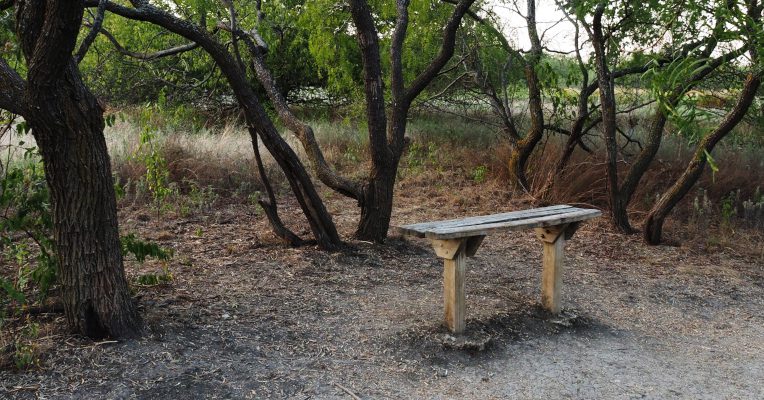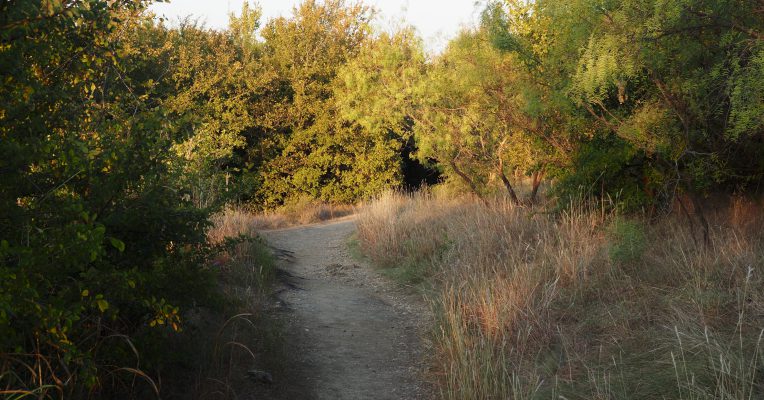Back in August I asked for questions for a round of Conversations Under the Oaks. Both the quality and quantity were great – I’ve been answering them for over a month. Now I’m at the end of the questions. I have three left and I want to address them together.
Bonnie Jewel asked:
How do we talk honestly about difficult topics while still inspiring ourselves to move towards a better future? How do we stay real about concerns but lead towards constructive solutions rather than get stuck on problems?
An anonymous questioner asked:
What kind of encouragement would you give to help people not lose their faith in the current times in the U.S.?
And another asked:
There is so much to be depressed and to feel powerless about faced with the power of corporations and governments so how do you even start to build a resistance?
My first post in this series was Living in Tower Time and I encourage you to read (or re-read) it. It discusses the context of the world we’re living in – you can’t make a plan until you understand what you’re dealing with.
Once again I need to point out that I don’t have all the answers. This is what I’m doing. It’s not perfect, but it’s keeping me going.
A hierarchy of priorities
No one has unlimited capacities and resources. Some have more than others, but everyone has to choose their priorities. As the cliché goes, everything can be important, but everything can’t be first.
1. Survive. In the words of General Patton, no bastard ever won a war by dying for his country. You’re no good to anyone – including yourself – if you burn out or if you obsess over things out of your control (I’m bad about that – really bad).
Do what you have to do to keep yourself safe, fed, housed, and healthy. For most of us, that also means doing what you have to do to stay employed. True self-care isn’t indulgence – it’s the discipline to do what you know you need to do. Sometimes that means rest, sometimes that means work.
2. Succeed. It’s not enough to just live – we want to live well. For most of us, that means having enough – enough money to do what we need to do and enough time to do what we want to do. Only you know what that is for you. Give some thought – and meditation, and perhaps divination – to what success looks like for you… and for how you can get there. Make a plan and then work the plan.
3. Make the world better. Some would say this should be priority 2, or at least priority 2A. I put it third because once your first priority is assured, you can probably work on your second and third priorities at the same time. But also, your success is mostly a matter of your own efforts (I’m not ignoring the vastly different levels of privilege in our world – I’m saying no one has as much impact on your success as you). Building a better world is a long journey involving many, many people.
None of us can “fix” the world – not with magic and not with mundane action. All we can do is contribute to making it better. So vote, give money and time to worthy causes, and help others on a one-on-one basis where you can.
Understand and accept that your impact will be limited. But in the words of 19th century Unitarian minister Edward Everett Hale “because I cannot do everything, I will not refuse to do the something that I can do.”
4. Make the world beautiful. Just fulfilling our basic needs can be overwhelming. But that only takes care of our bodies. Our souls need more – our souls need beauty. If you can, make good art. If you can’t, support artists who make good art: writers, musicians, visual artists, architects, and others. Making things beautiful requires a little money, but mainly it requires imagination.
What is beauty? That’s for you to say.
If you can’t make the world beautiful, then make your little corner of the world beautiful.
Listen to your ancestors
Honoring our ancestors is a core component of Paganism as I practice it, and of many other religions. We owe our ancestors a debt of honor, for without them we quite literally would not be. They are usually our most accessible spiritual allies. Whatever we are going through, they likely have relevant experience.
Our ancestors survived ice ages and floods, wars and enslavement, famines and plagues, and every other calamity known to humanity. They survived. They made it through.
And they didn’t just survive – they succeeded as well. They lived full and happy lives (at times, anyway – no one’s life is perfect). They loved their families and their friends. They enjoyed good food and drink. Most of them had far fewer opportunities than we do, but they made the most of what they had.
Our ancestors live on in us. We carry their genes, and to at least a certain extent, we carry their memories.
Where they fell short, we can do better. But we know we can make it through these challenges, because our ancestors made it through theirs.
How much can you care about?
We have plenty of examples of people whose actions demonstrate they don’t care about anyone but themselves, people whose political philosophy can be best described as “I got mine, screw you.”
We want to be better than that. We are better than that. We see inequality and injustice and it bothers us – it angers us.
Anger is good when it moves us to do something to make things better. But when we can’t, it just raises our blood pressure and makes us miserable.
Byron Ballard – who originated the term “Tower Time” – suggests that everyone “pick three.” Pick three causes / concerns / situations, figure out how you can best contribute to making them better, and then do that. You don’t ignore everything else but you acknowledge that it isn’t one of your three and someone else will have to work on that.
You do what you can do and you acknowledge that you can’t do everything. And so you don’t try to do what you cannot do.
Tighten your circles
Along those lines, remember that for most of our evolutionary history, humans were born, lived, and died in a very small area. People in France didn’t know what was going on in Germany, much less in China. We are not made for being plugged into every crisis going on in the world.
I learned this as a child. When things got to be too much, I tightened my circles. At some times that meant I was only concerning myself with getting my schoolwork done and ignoring everything else. Today, there are times when I have to cut myself off from politics, social media, and even entertainment. There are times when the stress of being connected is simply too much. And so I disconnect.
I never stay disconnected for very long. It’s a lonely way to live, and it takes more effort than you might think. And I don’t want to be disconnected. But there are times when I need to be disconnected, so I can rest and recover and get ready to engage with the wider world again.
Do something to make things better
Do something to make things better for the world. It can be as big or as small as you like, as anonymous or as personal as you like, as practical or as abstract as you like.
Do something to make things better for yourself. It’s OK to “treat yourself” – particularly if it’s something like new clothes or a new haircut that will make you feel better about yourself (unless you have an addition to retail therapy, in which case it will likely make things worse). But it’s better if it’s something that will make your surroundings better. It can be as big or as small as you like. Find a new house, or clean the house you have. Repair or replace one of those broken little things you’ve been ignoring for months. Go for a walk – and then do it again tomorrow.
One of the biggest problems with our current world is lack of agency – the world’s problems are overwhelming and we feel powerless to do anything about them. Doing something – no matter how small – reminds us that we do have agency. We may not be able to fix the world, or even our own lives. But we can make things a little better – and then make them better still tomorrow.
Make a plan – work the plan
For me, nothing helps me deal with unpleasant situations – whether large or small – than making a good, solid, realistic plan.
The planning process begins by setting goals. Setting proper goals – finding the right target – is the most important part of effective magic. It’s critical to mundane life as well.
What do you want? Where do you want to be? What do you want to do? How do you want to live?
Is that possible? If not, what’s the next best thing?
Do you really want that, or have you been told you’re supposed to want it?
Are you willing and able to do what it will take to get there?
Choose your goal. Then make a step by step plan to get there.
And then start working the plan.
Do all the mundane things you need to do to accomplish your goals. And also, do the magical things that will make accomplishing them more likely. Hypersigils are very good for big plans. I have one that’s been in progress for several years and is doing well. I had another one that I recently shifted, because of a shift in priorities – and because of a shift in the overall environment.
I’ve used hypersigils and related techniques multiple times in the past with very good results. They aren’t fast, but they are effective.
Do something to make things better. And then do it again.
Do what brings you joy
In the midst of all the necessary and sometimes difficult work we must do, don’t forget to enjoy life.
Spend good time with your family and friends. Enjoy good food and drink. Read good books, watch good movies, and listen to good music. Travel, to the extent you can. Play.
What’s good? That’s for you to decide – and no one else.
Puritans on all sides of the political spectrum will tell you that such pleasures are sinful or wasteful or that you are undeserving. They are wrong. Joy and pleasure are necessary, even if they’re harder to find in difficult times.
Remember that this is Tower Time
We have left the Era of Progress and moved into Tower Time and all that means. I can’t tell you everything is going to be OK, because it’s not. I can tell you that we can make things better for the world and we can especially make things better for ourselves. We can live good and virtuous lives – as we honor our ancestors, we can live so as to be worthy of the honor of those who come after us.
And we can find love, and joy, and happiness.
May your life and your work be blessed as we move forward in these most interesting of times.






















